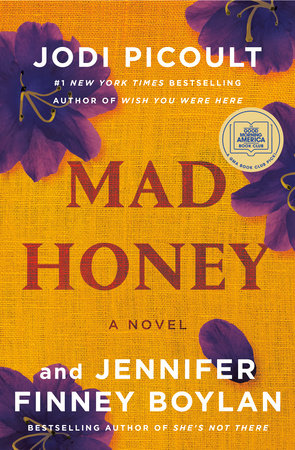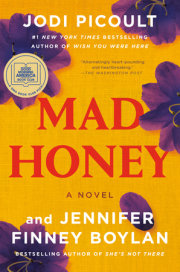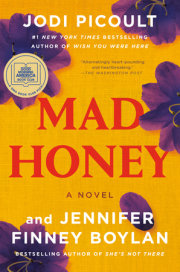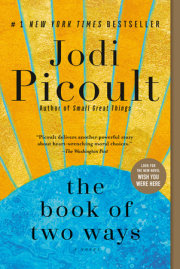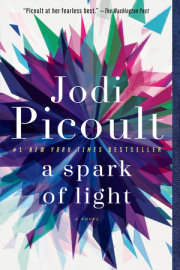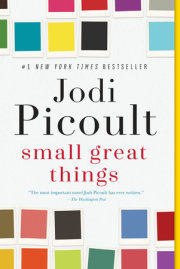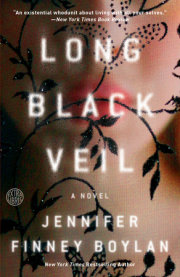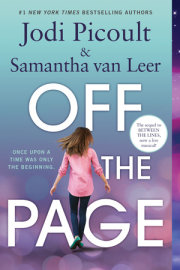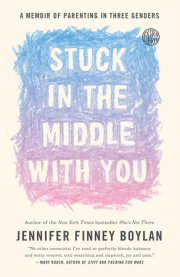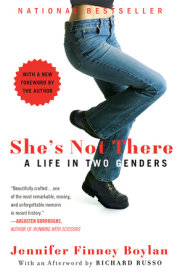Chapter 1
Olivia 1
December 7, 2018
The day ofFrom the moment I knew I was having a baby, I wanted it to be a girl. I wandered the aisles of department stores, touching doll-size dresses and tiny sequined shoes. I pictured us with matching nail polish—me, who’d never had a manicure in my life. I imagined the day her fairy hair was long enough to capture in pigtails, her nose pressed to the glass of a school bus window; I saw her first crush, prom dress, heartbreak. Each vision was a bead on a rosary of future memories; I prayed daily.
As it turned out, I was not a zealot . . . only a martyr.
When I gave birth, and the doctor announced the baby’s sex, I did not believe it at first. I had done such a stellar job of convincing myself of what I wanted that I completely forgot what I needed. But when I held Asher, slippery as a minnow, I was relieved.
Better to have a boy, who would never be someone’s victim.
Most people in Adams, New Hampshire, know me by name, and those who don’t, know to steer clear of my home. It’s often that way for beekeepers—like firefighters, we willingly put ourselves into situations that are the stuff of others’ nightmares. Honeybees are far less vindictive than their yellow jacket cousins, but people can’t often tell the difference, so anything that stings and buzzes comes to be seen as a potential hazard. A few hundred yards past the antique Cape, my colonies form a semicircular rainbow of hives, and most of the spring and summer the bees zip between them and the acres of blossoms they pollinate, humming a warning.
I grew up on a small farm that had been in my father’s family for generations: an apple orchard that, in the fall, sold cider and donuts made by my mother and, in the summer, had pick-your-own strawberry fields. We were land-rich and cash-poor. My father was an apiarist by hobby, as was his father before him, and so on, all the way back to the first McAfee who was an original settler of Adams. It is just far enough away from the White Mountain National Forest to have affordable real estate. The town has one traffic light, one bar, one diner, a post office, a town green that used to be a communal sheep grazing area, and Slade Brook—a creek whose name was misprinted in a 1789 geological survey map, but which stuck. Slate Brook, as it should have been written, was named for the eponymous rock mined from its banks, which was shipped far and wide to become tombstones. Slade was the surname of the local undertaker and village drunk, who had a tendency to wander off when he was on a bender, and who ironically killed himself by drowning in six inches of water in the creek.
When I first brought Braden to meet my parents, I told him that story. He had been driving at the time; his grin flashed like lightning. But who, he’d asked, buried the undertaker?
Back then, we had been living outside of DC, where Braden was a resident in cardiac surgery at Johns Hopkins and I worked at the National Zoo, trying to cobble together enough money for a graduate program in zoology. We’d only been together three months, but I had already moved in with him. We were visiting my parents that weekend because I knew, viscerally, that Braden Fields was the one.
On that first trip back home, I had been so sure of what my future would hold. I was wrong on all counts. I never expected to be an apiarist like my father; I never thought I’d wind up sleeping in my childhood bedroom once again as an adult; I never imagined I’d settle down on a farm my older brother, Jordan, and I once could not wait to leave. I married Braden; he got a fellowship at Mass General; we moved to Boston; I was a doctor’s wife. Then, almost a year to the day of my wedding anniversary, my father didn’t come home one evening after checking his hives. My mother found him, dead of a heart attack in the tall grass, bees haloing his head.
My mother sold the piece of land that held our apple orchard to a couple from Brooklyn. She kept the strawberry fields but was thoroughly at a loss when it came to my father’s hives. Since my brother was busy with a high-powered legal career and my mother was allergic to bees, the apiary fell to me. For five years, I drove from Boston to Adams every week to take care of the colonies. After Asher was born, I’d bring him with me, leaving him in the company of my mother while I checked the hives. I fell in love with beekeeping, the slow-motion flow of pulling a frame out of a hive, the Where’s Waldo? search for the queen. I expanded from five colonies to fifteen. I experimented with bee genetics with colonies from Russia, from Slovenia, from Italy. I signed pollination contracts with the Brooklynites and three other local fruit orchards, setting up new hives on their premises. I harvested, processed, and sold honey and beeswax products at farmers’ markets from the Canadian border to the suburbs of Massachusetts. I became, almost by accident, the first commercially successful beekeeper in the history of apiarist McAfees. By the time Asher and I moved permanently to Adams, I knew I might never get rich doing this, but I could make a living.
My father taught me that beekeeping is both a burden and a privilege. You don’t bother the bees unless they need your help, and you help them when they need it. It’s a feudal relationship: protection in return for a percentage of the fruits of their labors.
He taught me that if a body is easily crushed, it develops a weapon to prevent that from happening.
He taught me that sudden movements get you stung.
I took these lessons a bit too much to heart.
On the day of my father’s funeral, and years later, on the day of my mother’s, I told the bees. It’s an old tradition to inform them of a death in the family; if a beekeeper dies, and the bees aren’t asked to stay on with their new master, they’ll leave. In New Hampshire, the custom is to sing, and the news has to rhyme. So I draped each colony with black crepe, knocked softly, crooned the truth. My beekeeping net became a funeral veil. The hive might well have been a coffin.
By the time I come downstairs that morning, Asher is in the kitchen. We have a deal, whoever gets up first makes the coffee. My mug still has a wisp of steam rising. He is shoveling cereal into his mouth, absorbed in his phone.
“Morning,” I say, and he grunts in response.
For a moment, I let myself stare at him. It’s hard to believe that the soft-centered little boy who would cry when his hands got sticky with propolis from the hives can now lift a super full of forty pounds of honey as if it weighs no more than his hockey stick. Asher is over six feet tall, but even as he was growing, he was never ungainly. He moves with the kind of grace you find in wildcats, the ones that can steal away a kitten or a chick before you even realize they’ve gone. Asher has my blond hair and the same ghost-green eyes, for which I have always been grateful. He carries his father’s last name, but if I also had to see Braden every time I looked at my son, it would be that much harder.
I catalog the breadth of his shoulders, the damp curls at the nape of his neck; the way the tendons in his forearms shift and play as he scrolls through his texts. It’s shocking, sometimes, to be confronted with this when a second ago he sat on my shoulders, trying to pull down a star and unravel a thread of the night.
“No practice this morning?” I ask, taking a sip of my coffee. Asher has been playing hockey as long as we’ve lived here; he skates as effortlessly as he walks. He was made captain as a junior and reelected this year, as a senior. I never can remember whether they have rink time before school or after, as it changes daily.
His lips tug with a slight smile, and he types a response into his phone, but doesn’t answer.
“Hello?” I say. I slip a piece of bread into the ancient toaster, which is jerry-rigged with duct tape that occasionally catches on fire. Breakfast for me is always toast and honey, never in short supply.
“I guess you have practice later,” I try, and then provide the answer that Asher doesn’t. “Why yes, Mom, thanks for taking such an active interest in my life.”
I fold my arms across my boxy cable-knit sweater. “Am I too old to wear this tube top?” I ask lightly.
Silence.
“I’m sorry I won’t be here for dinner, but I’m running away with a cult.”
I narrow my eyes. “I posted that naked photo of you as a toddler on Instagram for Throwback Thursday.”
Asher grunts noncommittally. My toast pops up; I spread it with honey and slide into the chair directly across from Asher. “I’d really prefer that you not use my Mastercard to pay for your Pornhub subscription.”
His eyes snap to mine so fast I think I can hear his neck crack. “What?”
“Oh, hey,” I say smoothly. “Nice to have your attention.”
Asher shakes his head, but he puts down his phone. “I didn’t use your Mastercard,” he says.
“I know.”
“I used your Amex.”
I burst out laughing.
Copyright © 2022 by Jodi Picoult. All rights reserved. No part of this excerpt may be reproduced or reprinted without permission in writing from the publisher.

